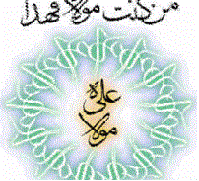Eid Ghadeer Khumm 1
Eid Ghadeer Khumm 1

Eid al-Ghadeer, observed by Shia Muslims on the 18th of Dhu al-Hijjah in the Islamic calendar, is a celebration of the appointment of Ali ibn Abi Talib by the prophet Muhammad (s.a.w.a.) as his successor.
The festival also marks the anniversary of Muhammad's sermon, as described in Hadith of the pond of Khumm in which Muhammad (s.a.w.a.) states, "Whomsoever's master (maula) I am, Ali is also his (maula) master. O God, love those who love him, and be hostile to those who are hostile to him.
(من كنت مولاه فهذا عليّ مولاه أللهم والِ من والاه و عادِ من عاداه)
Shia Muslims celebrate the day with a tradition of a mass oath to reasserting their commitment to Islam, in the same manner as individual Shia adults take an oath on reaching adulthood. Sunni Muslims do not celebrate Eid al-Ghadeer because they do not believe that it is an established celebratory day.
Some months before the death of Prophet Muhammad (who was living in Medina), he made his last pilgrimage to Makkah in what is known as The Farewell Pilgrimage. There, at Mount Arafat, he addressed the Muslim crowds in what came to be known as The Farewell Sermon. After completing the Hajj, Prophet Muhammad (s.a.w.a.) started back towards Medina. During his trip, he stopped at the pond at Khumm (now al-Johfa) and appointed Ali as the master of believers. Prophet Muhammad (s.a.w.a.)also entered a covenant about his mastership with those present. The meaning of maula (master) is controversial among the major Islamic sects. Although the tradition is recorded in Shia and Sunni historical books, the sects disagree on the interpretation of the tradition and the event itself (the word maula in particular). There are minor differences in the wording of the tradition, as in many repetitive traditions in a single book. The tradition recorded in authentic Muslim books (such as the Sahih Muslim) is that after the pilgrimage, Prophet Muhammad (s.a.w.a.) ordered a gathering of Muslims to the pond at Khumm where he nominated Ali (a.s) as master (maula). Shia tradition interprets this as an announcement of Ali's succession to the Prophet, while Sunnis believe that it was intended as public praise of Ali (a.s) before his companions (some of whom disliked him). The sermon in Shia accounts is:
O people! Reflect on the Quran and comprehend its verses. Look into its clear verses and do not follow its ambiguous parts, for by Allah, none shall be able to explain to you its warnings and its mysteries, nor shall anyone clarify its interpretation, other than the one that I have grasped his hand, brought up beside myself, [and lifted his arm,] the one about whom I inform you that whomever I am his master (Maula), this Ali is his master (Maula); and he is Ali Ibn Abi Talib, my brother, the executor of my will (Wasiyyi), whose appointment as your guardian and leader has been sent down to me from Allah, the Greatest, Mighty and the Majestic.
Add new comment